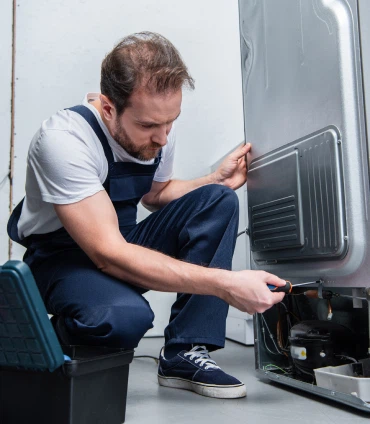 Thursday, October 17, 2024
Thursday, October 17, 2024  Thursday, October 17, 2024
Thursday, October 17, 2024 
When a home appliance breaks down, the immediate question most homeowners face is whether to repair the appliance or replace it altogether. Appliances like refrigerators, washing machines, and ovens are essential to daily life, so making the right decision is crucial. While a new appliance can bring advanced features and improved energy efficiency, repair might still be the more cost-effective and environmentally friendly option. In this guide, we’ll help you determine when it’s best to repair and when replacement is the smarter choice.
For expert advice and services related to appliance repair, you can find more information here.
The age of your appliance is one of the key factors in determining whether to repair or replace it. Most appliances have a lifespan of about 10 to 15 years, depending on the brand and how well they’ve been maintained. If your appliance is nearing or has exceeded this lifespan, replacement might be the better option. However, if it’s only a few years old, a repair could give you many more years of use at a fraction of the cost of a new appliance.
Another consideration is how often the appliance has required repairs in the past. If you’ve already had to repair your appliance multiple times in recent years, it might be a sign that it’s nearing the end of its life. On the other hand, if this is the first issue you’ve encountered, repair is likely the more economical choice. Repeated breakdowns can signal that more significant issues are on the horizon.
Cost is a significant factor in making your decision. A general rule of thumb is that if the repair costs are more than 50% of the price of a new appliance, it’s better to replace it. However, if the repair is less than half the cost of a new model, opting for the repair makes more financial sense. It’s also essential to factor in the potential cost savings from improved energy efficiency if you’re considering a newer model.
Newer appliances tend to be more energy-efficient, which can save you money in the long run. If your appliance is older and less efficient, replacing it with a more energy-efficient model can reduce your utility bills. However, if your current appliance is still performing well and your energy bills haven’t spiked, a repair might be the better choice.
Replacing an appliance has environmental consequences, including the waste created by disposing of the old one and the resources used to manufacture a new unit. Repairing an appliance extends its life and reduces the environmental footprint associated with its disposal. If you’re conscious of your environmental impact, opting for repair when feasible can be a more sustainable choice.
Deciding whether to repair or replace an appliance can be a difficult choice, but by considering factors such as the appliance’s age, the frequency of repairs, and the costs involved, you can make an informed decision. For professional repair services that can help you get the most out of your appliances, visit https://techvillvancouver.ca/. Making the right choice will ensure your home continues to run smoothly while potentially saving you time, money, and resources.
Check out more news, articles and blogs here